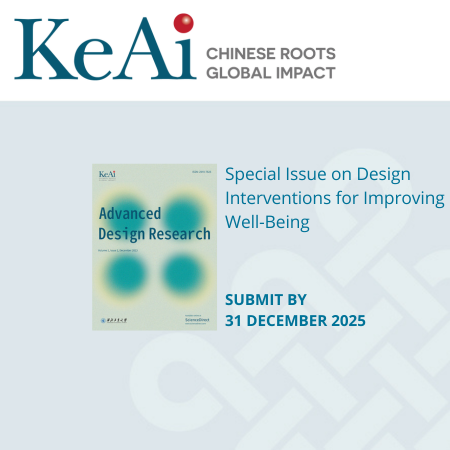Special Issue on Psychology-Driven and Human-Centered Approaches to Interaction Design Research
Published 19 May, 2024
This special issue presents the latest research in interaction design that seamlessly incorporates psychological principles with human-centered methodologies. As technology becomes increasingly integrated into our daily lives, it is crucial to understand the psychological effects of our design decisions.
The special issue highlights the influence of merging psychological insights and prioritizing human needs within design processes. These approaches not only enhance user experiences but also foster more effective, inclusive and sustainable technological solutions across various fields.
We invite contributions that challenge traditional methods and introduce new perspectives on transdisciplinary research, practice and teaching. We encourage contributors to explore the synergy between human-computer interaction, cognitive science, engineering psychology, and design disciplines. Our focus is on designs that are both functional and visually appealing, informed by an understanding of human behavior and mental processes.
We hope this issue will serve as a platform to inspire researchers, practitioner and educators to critically engage with and shape the future of interaction design research.
Topics covered
- Human factors in engineering psychology
- Human-centered design principles
- Human-computer interaction
- Design thinking, doing, and tinkering
- Kansei, emotional, and affective engineering
- Psychological and digital wellbeing
- Emerging and multimodal technologies
- Transdisciplinary teaching and learning
Important deadlines
- Submission deadline: 31 December 2025
- Publication date: Will be assessed on a rolling basis as they are received.
Submission instructions
Please read the [Guide for Authors] before submitting. All articles should be [submitted online], please select [VSI: Psy-Driven HCI Design] on submission.
Guest editors
- Dr. Wei Liu, Associate Professor, School of Design, Southern University of Science and Technology, China. Email: liuwei@sustech.edu.cn
- Dr. Abdullah Al Mahmud, Associate Professor, Swinburne University of Technology, Australia. Email: aalmahmud@swin.edu.au
- Dr. Takumi Ohashi, Associate Professor, Tokyo Institute of Technology, Japan. Email: ohashi.t.af@m.titech.ac.jp
- Dr. Matteo Zallio, Associate Professor, University of Cambridge, UK. Email: mz461@cam.ac.uk

